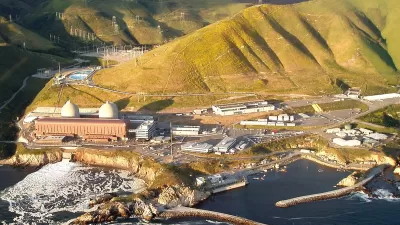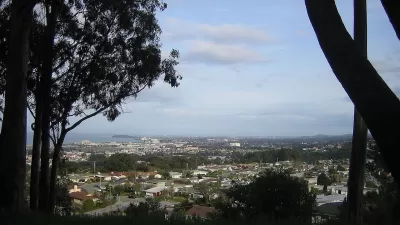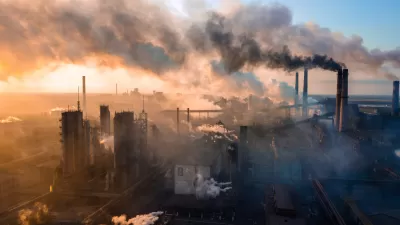Irvin Dawid discovered Planetizen when a classmate in an urban planning lab at San Jose State University shared it with him in 2003. When he left San Jose State that year, he took with him an interest in Planetizen, if not the master's degree in urban & regional planning.
As a long-time environmental activist, he formed the Sustainable Land Use committee for his local Sierra Club chapter and served six years on the Bay Area Air Quality Management District’s Advisory Council from 2002-2008. He maintains his interest in air quality by representing Sierra Club California on the Clean Air Dialogue, a working group of the Calif. Environmental Dialog representing business, regulatory and public health/environmental interests.
Major interests include transportation funding, e.g., gas taxes, vehicle miles traveled (VMT) fees, road tolls and energy subsidies that lead to unlevel playing fields for more sustainable choices.
He hails from Queens (Bayside) and Long Island (Great Neck); received an AAS in Fisheries & Wildlife Technology from SUNY Cobleskill and a B.S. from what is now Excelsior College.
After residing for three years on California’s North Coast, he’s lived on the San Francisco Peninsula since 1983, including 24 years in Palo Alto. Home is now near downtown Burlingame, a short bike-ride to the Caltrain station.
He’s been car-free since driving his 1972 Dodge Tradesman maxi-van, his means to exit Long Island in 1979, to the junkyard in 1988.
Major forms of transportation: A 1991 'citybike' and monthly Caltrain pass, zone 2-2. "It's no LIRR, but it may be the most bike friendly train in America."
Irvin can be reached at [email protected]

Population Losers
California's population dipped below 39 million as of July, according to the Census Bureau, after seeing its net domestic migration loss this year exceed last year's. Only New York has seen a greater loss as a percentage of population.

California's Lone Operating Nuclear Plant Gets Five-Year Extension
The Pacific Gas and Electric Company's Diablo Canyon Nuclear Power Plant received approval from the California PUC to operate its two reactors until 2029 and 2030. Five days later, the NRC issued a temporary license renewal.

COP28: Beginning of the End for Fossil Fuels?
A deal came together “quickly and unexpectedly" on the final night of the nearly 2-week United Nations climate talks in Dubai, UAE, according to a series of articles by Washington Post climate reporters.

Article 34 in Action: Bay Area Suburb Uses 1950 Initiative to Block Homeless Housing
Next year, California voters will determine whether to repeal a 1950 initiative that requires local voter buy-in for government-supported low income housing, but that hasn't deterred Millbrae from using it to sue San Mateo County.

COP28: Will Developed Nations Reduce Emissions?
Tensions between developed and developing nations surfaced over emissions and energy, with the former focused on reducing fossil fuels and the latter pointing to unrealized emissions reductions from the nations most responsible for global warming.

























